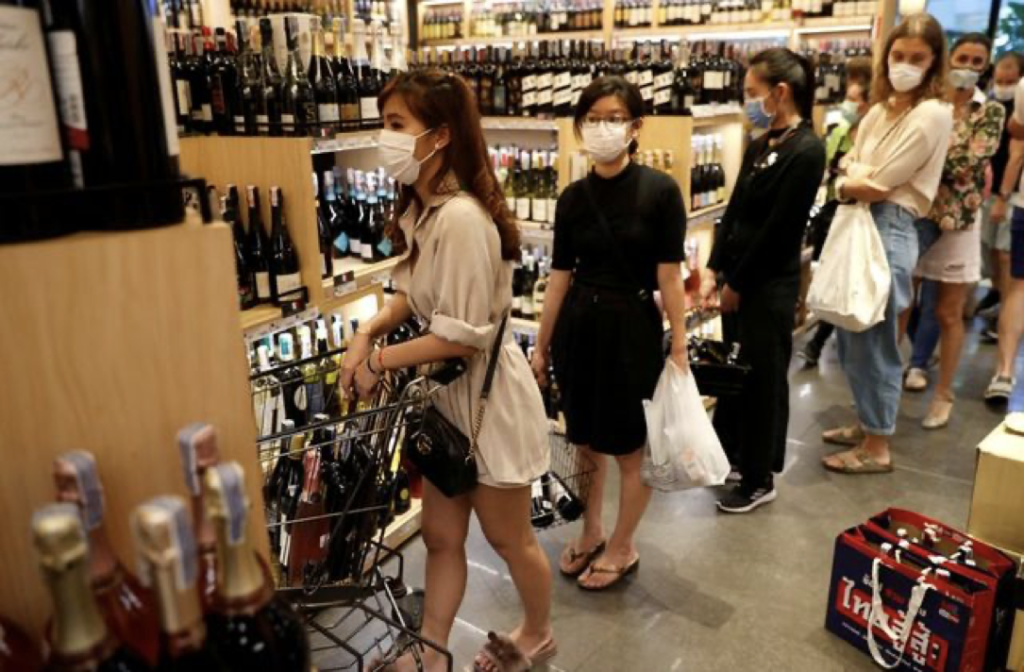Nowadays, all people have to find a way to adapt to the stress caused by the pandemic. Quarantine and self-isolation are especially tough on people with substance use disorders. Sara Goldsby, the director at the Department of Alcohol and Other Drug Abuse Services (DAODAS) says they’ve seen about a 30% increase in EMS response to overdose in the last few months.
The World Health Organization has specifically warned about alcohol use during the COVID-19 pandemic. More than three million people die every year from alcohol, the WHO said. Alcoholic beverage sales rose by 55% in late March, when many states and public health officials urged residents to stay at home, compared to sales in 2019. While the increase in sales could represent stockpiling for the sheltered weeks ahead, it also signals the potential for alcohol abuse.

The WHO’s regional office for Europe recommended governments restrict access to alcohol and “any relaxation of regulations or their enforcement should be avoided.”
The combination of the pandemic, economic and stay-at-home conditions are tailor-made for drinking. People are coping with kids at home, spouses, social stress, financial stress, work stress, and the threat of disease. It’s true that some people use alcohol to relieve stress. Alcohol is a downer, it is a sedative. The problem is alcohol interferes with the ability to make good decisions. It increases the risk of conflict and domestic violence. In addition, alcohol interferes with sleep. It may make you sleepy originally, but it inhibits REM sleep. So often, people wake up at 3:00 or 2:00 at night, and they can’t get back to sleep.

Alcohol Addicts Are Relapsing During COVID-19

People who are recovering from a substance use disorder are finding it difficult to maintain sobriety with their routine uprooted. Many of them are relapsing during COVID-19. These relapses are thought to be brought on by the feelings of loneliness, anxiety, boredom that many are struggling with. Studies have shown the connection between social isolation and addiction over the years, proving that isolation is worse treatment outcomes.
In no way will consumption of alcohol protect you from COVID-19 or prevent you from being infected by it.
Relapses are common through the alcohol recovery process, so common that it is estimated that 40% – 60% of people in recovery have at least one relapse before reaching sobriety. During COVID-19, some people may isolate themselves at home alone while others are isolating from their families. Family members who live with a recovering drug addict or alcoholic should pay attention to the warning signs of relapse in their loved one, so they can act as a support system. Some signs include:
- Poor eating and bad sleeping habits
- Declining hygiene
- Talking to past friends
- Constant lying
- Unstable emotionally
- Skipping or avoiding virtual support meetings.
What we need to do now is reach out more than ever to those who are struggling with addiction. Bring them to rehab to get them to understand that they are not alone and forgotten during a crisis. We need to make sure that they are getting treatment and the medications they need to recover, that they have access to medical care, food, and housing.
Just dealing with addiction alone is an extremely scary and difficult thing to go through. However, being in the midst of active addiction during a global pandemic can be even more terrifying. If you or a loved one is suffering from addiction, do not let the COVID-19 outbreak prevent you from going to an addiction treatment center. Hathaway Recovery is continuing to provide help to suffering alcoholics while following all CDC guidelines in regards to the COVID-19 outbreak. Call us today.

Hathaway Recovery Drug & Alcohol Treatment Center
Treatment Center, MD, LCSW, LMFT, ASAM
Web: https://www.hathawayrecovery.com
E-mail: [email protected]
Phone: (909) 971-3333
Fax (909) 498-9898
1042 East Belmont Abbey Lane, Claremont, CA 91711






